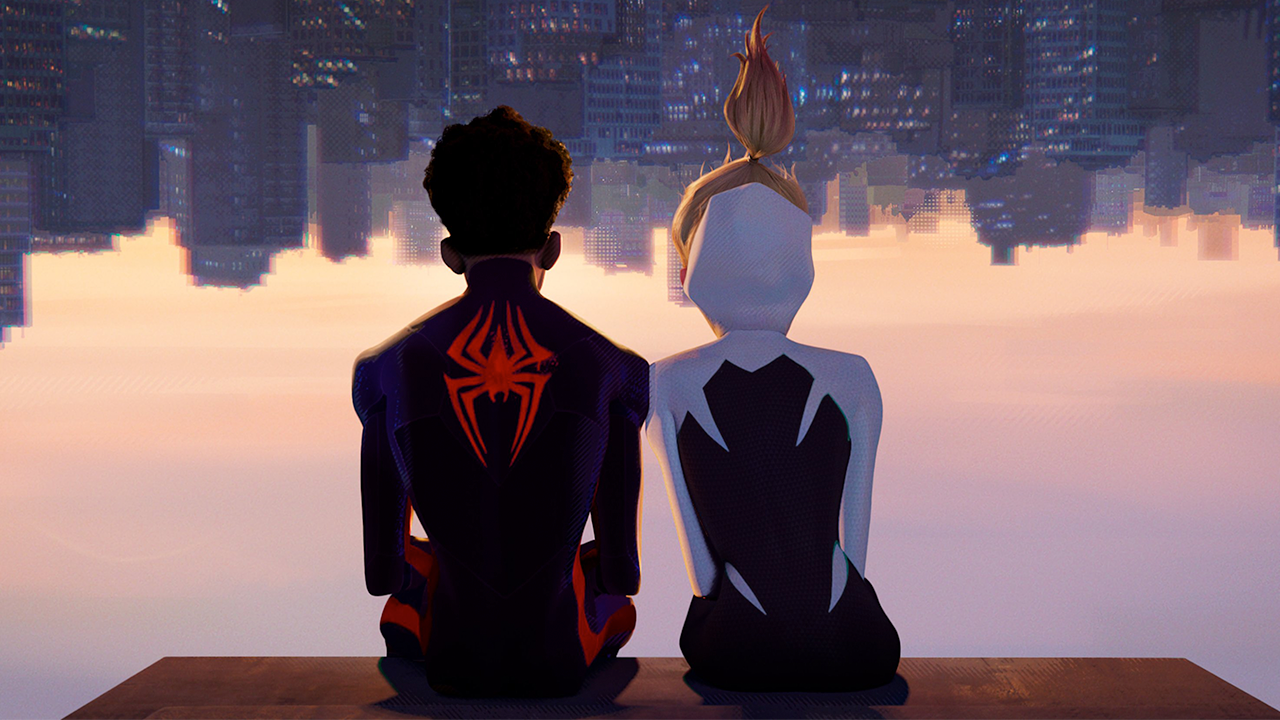Across the Spider-Verse

Let me get straight to the point; Across the Spider-Verse is absolutely spectacular. It’s the best animated movie I’ve ever seen, the best Spider-Man movie ever made and quite simply the best comic book movie full stop. It’s an Empire Strikes Back level sequel. It’s so good that I literally started a (micro!) blog to write about it.
After nine standalone live action movies and numerous cameo appearances, Across the Spider-Verse demostrates that there’s so much life and opportunity left in the franchise. It also highlights how constrained the MCU has become by its singular world and overarching style. 30+ movies in, its self-enforced monotony is sharply juxtaposed against the sheer variety and imagination in every frame of Across the Spider-Verse. And when it comes to effectively using the multiverse to tell a compelling story and exploiting the plethora of different Spider-People, only Loki is in the same ballpark (shout out to Alligator Loki!).
As a huge fan of Pixar, it’s also startling to realise how boring their almost photo-realistic animation style has become. While technically impressive, it just feels staid in comparison to how explosive and filled with life every scene in Across the Spider-Verse is. The movie blazes through different worlds, each with distinct literal and metaphorical characters, animation styles and colour palettes. It could be a recipe for confusion, but the sense of place is never in doubt due to the uniqueness of each one.
Having grown up on Bollywood movies, I’ve never been particularly concerned about brown people not being represented in Hollywood movies. But seeing Pavitr Prabhakar on screen completely filled me with delight. He wasn’t cheesy or caricatured, but a brilliantly fun and fleshed out Indian Spider-Man in a gloriously conceived Mumbatten. In a movie packed with standout moments, it was a real personal highlight.
And it’s not just style with no substance. Gwen gets more character development in the opening ten minutes than Natasha Romanoff received in ten years; it’s as much her movie as it is Miles’. The strength of the connection between the two protagonists is palpable, and the Williamsburg Bank Building scene is both visually beautiful and emotionally poignant. Miles’ relationship with his parents is more fully fleshed out and Rio in particular gets far more time to shine. The motivations are all believable and drive the characters and story forward.
Like any truly great comic book movie, Across the Spider-Verse also has a compelling villain / anti-hero. There are strong parallels with Eric Killmonger, in the way that Miguel O’Hara is driven by his own tragedy to do what he feels is right. Oscar Isaac’s voice work is outstanding, bringing a real menace and ferocity to the character, whilst hinting at the vulnerability under the surface.
If there’s one small criticism I could raise, it’s the “to be continued” conclusion. Even though I’ve waxed on for so long, to an extent Across the Spider-Verse can’t be fully judged until we get a chance to witness its true conclusion. It’s a minor shame that it doesn’t have its own ending.
There’s so much more I could write about, but I’d rather spend my time going to watch it for a third (and fourth) time whilst it’s still in the cinema. In case it hasn’t come through in my writing, this movie is a masterpiece.